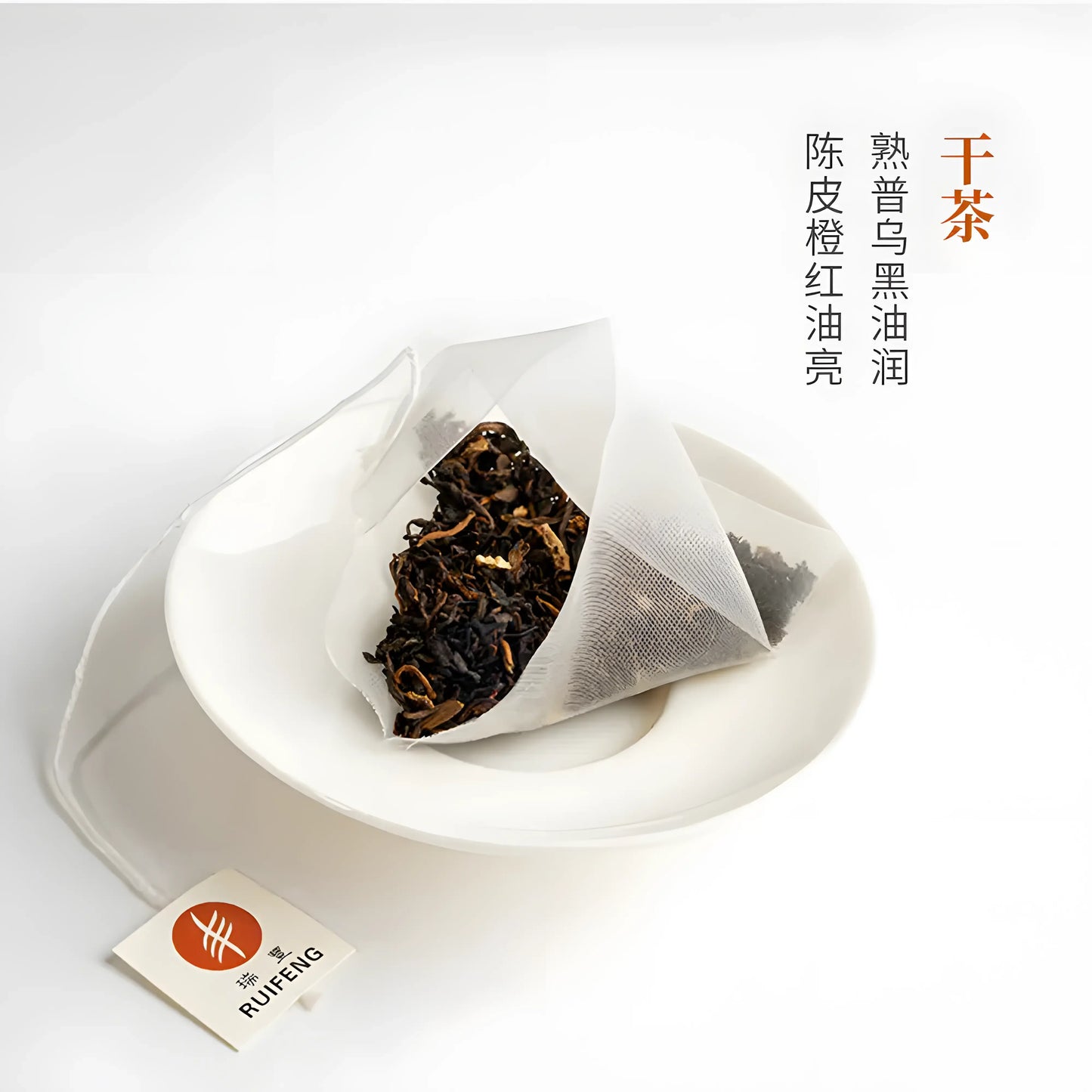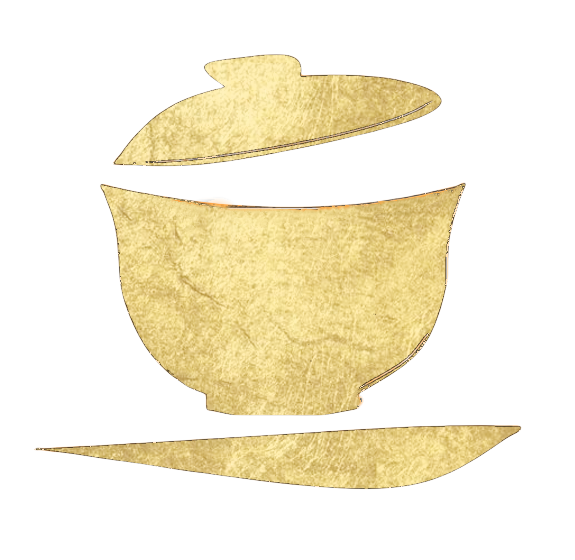Citrus Pu-erh Tea Bag | Tea For Bloating
Citrus Pu-erh Tea Bag | Tea For Bloating
Caffeine: Low
Flavor: Mellow\Floral
SKU:2.54.0199
Couldn't load pickup availability
- 24-hour customer service
- Safe packaging
- Free standard shipping
Aged Chenpi & Yunnan Shou Pu-erh – A Gentle Brew for Inner Stillness
The Elements: 【💧 Water】
Caffeine Level: Low
Benefits of the Tea:
- Emotional Resilience & Gentle Calm
- Kidney Support & Fluid Balance
- Inner Reflection & Deep Comfort
Let go of emotional weight with the soothing power of Water. Our Chenpi Pu-erh Tea blends 3-year-old ripe Pu-erh from Yunnan with 5-year-aged Xinhui tangerine peel. This calming brew is deeply grounding, supporting the Kidney meridian while promoting digestion and emotional ease.
Water Element Insight
- Organ: Kidneys & Bladder
- Emotion: Fear, Stillness, Willpower
- Energy Direction: Downward, Inward, Restorative
- When out of balance: Fatigue, Fearfulness, Imbalance in fluid metabolism
Chenpi Pu-erh supports the Water Element by nourishing Kidney Qi, calming the nerves, and encouraging deep inner reflection. A perfect tea for winter, rest, or quiet focus.
Ingredients & Origin
- Yunnan Ripe Pu-erh Tea – 3 years aged, from Xishuangbanna, Yunnan
- Xinhui Dried Tangerine Peel (Chenpi) – 5 years aged, from Jiangmen, Guangdong
Blended by Ruifeng Ganpu Tea. 100% natural. No artificial additives.
How to Brew
Hot Brew: 3g / 100°C / 2–3 min / Re-steep 2–3 times
Cold Brew: 5g / 500ml / Steep in fridge 8–10 hrs
Product Specifications
- Product Name: Old Chenpi Pu'er Ripe Tea (Teabag)
- Specification: 3g × 35 brews
- Packaging: Double-layer round can
- Storage: Cool, dry, ventilated, odor-free place
Tea Characteristics
- Dry Tea: Dark and oily Pu-erh, glossy Chenpi
- Tea Leaves: Intact and tender
- Tea Soup: Bright orange-red color
- Tea Bag: Triangular 3D design for optimal steeping
Frequently Asked Questions
What makes this a Water Element tea?
- This tea supports Kidney energy, emotional depth, and internal stillness—qualities associated with the Water Element in Wu Xing theory.
Does it help with digestion?
- Yes. The aged Chenpi and ripe Pu-erh are known for aiding digestion and balancing internal moisture.
When is the best time to drink it?
- Evenings, cold days, or any time you need to ground your energy and calm the body.
💧 Ground Yourself in Calm – Sip with Presence
Share




Blog posts
View all-

Rose Petal vs. Rosehip Tea: Your Guide to the K...
Not all rose teas are the same! This guide clarifies the confusion between delicate, soothing rose petal tea and tart, vitamin-C-rich rosehip tea. We compare their origins, flavors, core health...
Rose Petal vs. Rosehip Tea: Your Guide to the K...
Not all rose teas are the same! This guide clarifies the confusion between delicate, soothing rose petal tea and tart, vitamin-C-rich rosehip tea. We compare their origins, flavors, core health...
-

Rose Tea for Anxiety: Your Natural Remedy Guide
This guide explores rose tea as a natural remedy for anxiety, supported by both traditional wisdom and modern science. It explains how its compounds calm the mind, helps you select...
Rose Tea for Anxiety: Your Natural Remedy Guide
This guide explores rose tea as a natural remedy for anxiety, supported by both traditional wisdom and modern science. It explains how its compounds calm the mind, helps you select...
-

How to Make Rose Tea: Complete Brewing Guide
This guide shows you how to make rose tea perfectly, from selecting Rose White or Black Tea, controlling water temperature and steeping time, to integrating tea into your daily ritual...
How to Make Rose Tea: Complete Brewing Guide
This guide shows you how to make rose tea perfectly, from selecting Rose White or Black Tea, controlling water temperature and steeping time, to integrating tea into your daily ritual...







